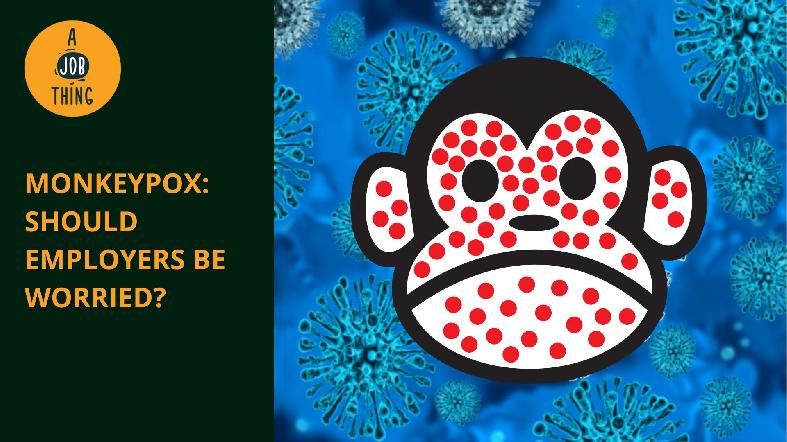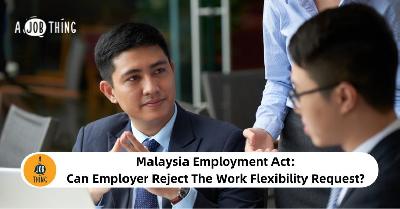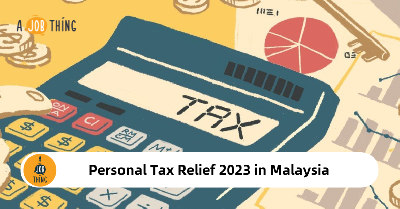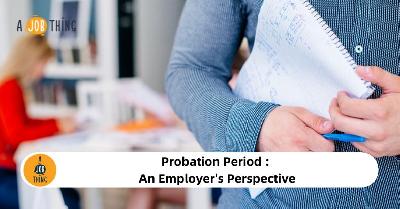
Monkeypox: Should Employers Be Worried?
Create Job Description Using AI
Write appealing job descriptions for any job opening to attract the most qualifield and suitable candidates. FOR FREE.
try now
On June 20, Singapore's health ministry reported an imported monkeypox case, the city-first state's in three years. Following the news, Johor has instructed its health department to contact Singapore's health authorities.
Although no such cases have been identified in Malaysia as of yet, steps are being taken to prevent a local virus spread.
Should employers be concerned?
Risks of monkeypox
Despite being unpleasant, this virus is significantly less contagious, and specialists think it offers minimal risk to the general public.
There is no need for people to fear because, despite being rare, healthcare professionals are aware of the virus, and there are already treatments available with the expectation that patients will fully recover. Businesses need to be ready because things can change instantly, as we've seen with the Covid-19 outbreak.
Here are the symptoms of monkeypox, according to Singapore's Ministry of Health:
-
Fever
-
Headache
-
Muscle ache
-
Backache
-
Swollen lymph nodes
-
Chills
-
General feeling of exhaustion
These are among the initial symptoms, and they can make working extremely difficult regardless of your line of work.
Monkeypox treatment
Most cases of monkeypox are self-limiting, with symptoms often going away on their own in 14–21 days. There are currently no known effective treatments for monkeypox.
Commonly, symptomatic and supportive treatments are used. Vaccines and antiviral drugs are now being researched and produced to prevent and treat monkeypox.
What happens if a worker is infected with monkeypox?
Employees who have been diagnosed with monkeypox should stay home for 21 days. Where possible, it can be best for the employer to carry on with their duties from home during this period.
Employers may consider a temporary change in duties if the employee's regular work responsibilities do not permit home working.
Of course, if a staff member is too ill to work, the employer should handle the situation per standard sick leave policies. Depending on the terms of their employment, they may be eligible for sick leave.
Reducing risks of monkeypox in the workplace
Transmission rates are still relatively low, which is good news for both companies and employees. Employers should take precautions to reduce the possibility of the virus spreading within their workplace because they still owe a duty of care to their workers.
Fortunately, this isn't the first time that companies have had to implement these measures. General social isolation policies that were in place during Covid may probably be implemented quickly, and most staff members are aware of the rules concerning them.
You may ensure great hygiene standards throughout your organisation by using PPE and hand sanitising stations. Taking even a few minor precautions can significantly lower the danger of a virus spreading and help your employees feel more at rest if the worst happens.
Monkeypox can spread by respiratory secretions during prolonged face-to-face contact while being mainly contagious through touch.
-
To help staff reduce the risk, encourage more virtual meeting sessions to minimise close contact.
-
To ensure that a healthy quantity of air flows through your office, consider upgrading your ventilation systems. You don't need any special high-tech equipment, which can be as simple as leaving your windows open.
Even though the mere mention of monkeypox can be unsettling, you should reassure your staff that there is little chance that the virus will cause a new pandemic in order to calm their fears.
The best thing for employers to do right now is to maintain high levels of cleanliness standards and be ready. Additional measures may need to be taken if government guidance becomes more rigorous, but for the time being, this is the best course of action.





